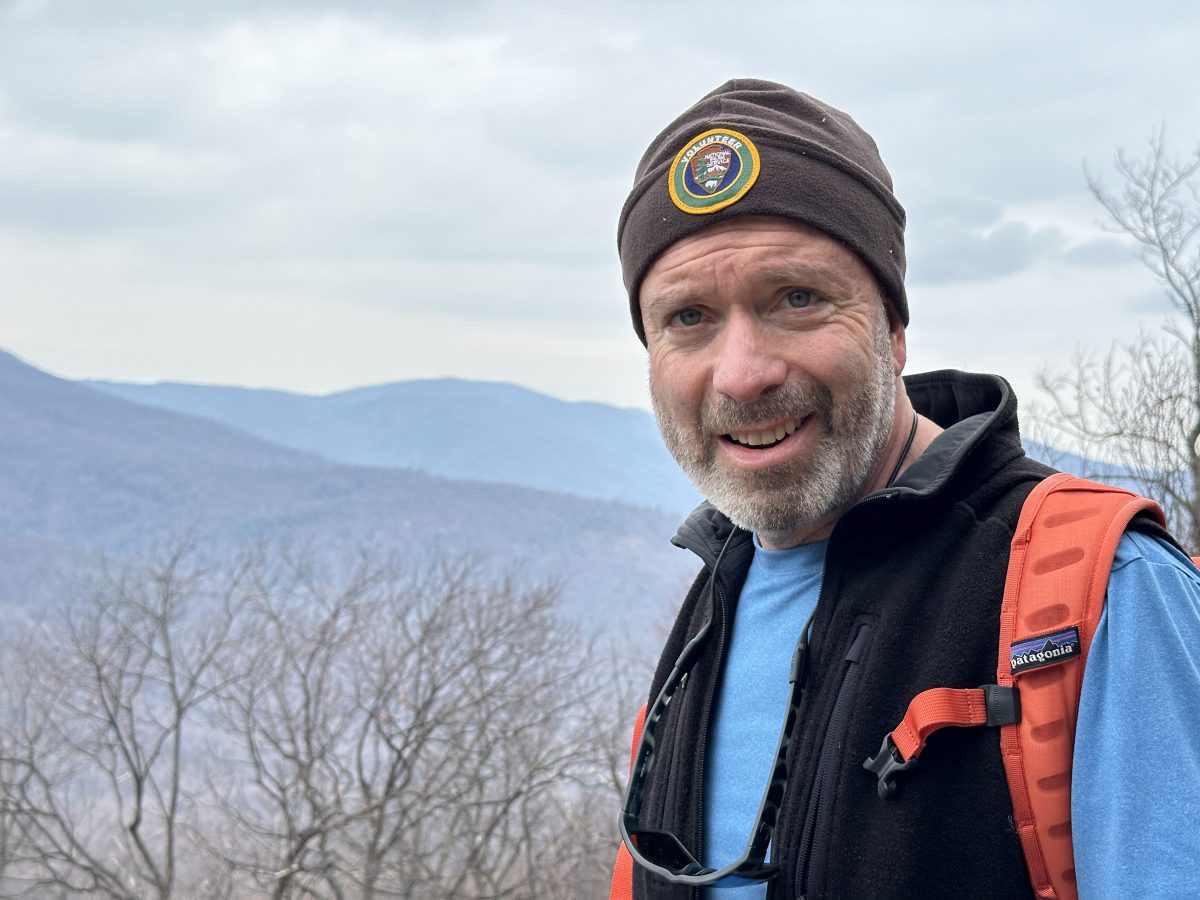Every seat was filled Saturday, April 13, as Dana Milbank recounted what led him to be aiming a bolt-action rifle out of his bathroom window at three whitetail deer. The answer, besides good luck and bad timing, is that the population of whitetail deer has swelled to more than 14 times what the ecosystem can handle. The deer, Milbank says, have become “ecological bullies,” stripping the forest of leaves and unraveling the food web.
The Washington Post columnist has been writing about rural life and its proximity to environmental concerns, or one might prefer to say environmental degradation, since moving from the city to 60 acres in Rappahannock County. With a combination of humorous wit and self-mockery, Milbank has expanded on topics of light pollution, rural access to broadband, the march of invasive species, the decline of pollinators, and the consequences of an invisible insect genocide in between his usual political commentary for the Post.
Milbank approaches the environmental impacts and large-scale shifts of the Anthropocene through a lens of discovery, learning about life in rural America as an outsider on his property. Now living in an area more sensitive to those changes, Milbank recounts his struggles as he goes about trying his best to be a good steward of the land—planting trees, restoring riparian zones, and building pollinator meadows.
Summing up his labors on the farm, Milbank said, “You can sit here and be depressed about what’s happening to our planet, and there’s plenty of justification for that, or you can go out and plant a tree.”
And he has been planting trees on his parcel of land. Writing about his efforts in the garden, he’s said, “Years from now, those tender oak seedlings, now 6-inch twigs, will stretch as high as 100 feet, feeding and sheltering generations of wild animals struggling to survive climate change and habitat loss. I won’t be alive to see it. Yet even now, my infant oaks give me something the most stunning cherry blossoms never could: a sense of hope.”
Event moderator Rowena Zimmermann identified Milbank’s attitude toward hope as essential, equating the hope expressed in his writings on the farm with the hope expressed in his commentary on politics. He wrote of political engagement, “I think it’s important because we’ve got to try. We’ve got to do our part so we can say to our kids and our grandkids that at least we tried. That’s the reason to keep on doing this, even if it’s having no discernible effect and even if the people who most need to hear it aren’t paying the slightest bit of attention.”
It’s the attitude that keeps Milbank chipping away at the ailanthus, an invasive, prolific, and stubborn tree that dots the roadside in Rappahannock County.
“It’s like every other tree is ailanthus,” Milbank mused.
Invasive species in the environment is a rapidly progressing reality that the evening with Milbank hoped to raise awareness of. The talk was hosted by Blue Ridge PRISM, a volunteer-driven organization dedicated to reducing the impact of invasive plants. Seasonal workshops, assistance, education, and stewardship programs are available through the nonprofit, which works with landowners to manage invasive plants.
In fact, Milbank’s recently completed training as a master naturalist was partly facilitated by members of Blue Ridge PRISM. Though Milbank characteristically chooses to laugh at himself: “You have to put ‘master’ in quotes. It sounds cool to say you’re a ‘master’ naturalist, and it implies that you know what you’re talking about. But, as you’ve seen tonight, that’s obviously not true in all cases.”
